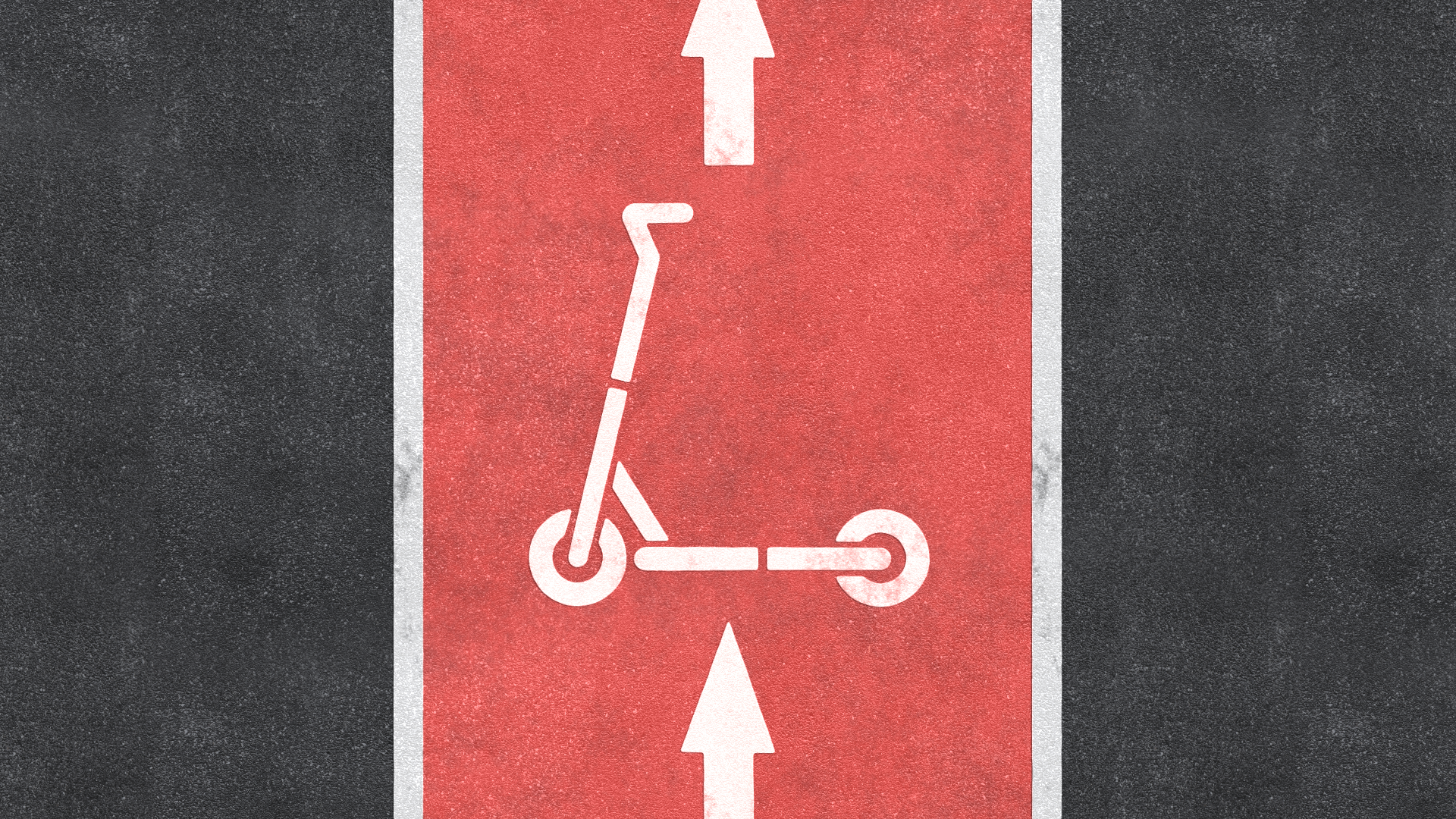Scooter boom raises new safety questions
Add Axios as your preferred source to
see more of our stories on Google.

Illustration: Caresse Haaser/Axios
Electric scooters have already landed dozens of riders in the hospital in less than two years since they appeared on city streets—but are they more dangerous than other modes of transportation like bicycles?
The bottom line: The answer is both yes and no, according to experts. While their characteristics differ, scooters and bikes share the same huge challenge — operating in an environment that's not built for them.
Scooters are inherently different from bikes in both form and usage, making them more prone to accidents in some ways.
- Speed: Scooters (and e-bikes) tend to go faster than traditional bicycles, making them harder to control for riders and more difficult to anticipate for cars and others on the road.
- Form: Experts also point to attributes of scooters like smaller wheels and lower center of gravity as factors that make them less capable of smoothly riding over uneven roads, potholes, swerving, and so on.
- Riders: In a recent Center for Disease Control study of scooters in Austin, more than 30% of those injured were first time riders, suggesting that lack of experience and safety education are factors in accidents.
The other side: Both scooters and bikes currently have to contend with roads that were designed only for cars. The growing popularity of scooters could force city planners to make room for them.
- Experts agree that bike lanes can be equally useful to scooter riders.
- Still, not all streets have protected spaces like bikes lanes. In the absence of bike lanes, most bikes ride amid cars on the road.
- But scooter riders tend to go in the opposite direction, and on sidewalks, creating a new slew of safety risks.
- “This is my big hope for scooters: they’re gonna cause the traffic engineers to change how they do their job in a way that bikes haven’t been able to do,” says Dave Campbell, advocacy director for Bike East Bay.
And if people really do swap scooter trips for some of their car rides, fewer cars on the road and an increased “safety in numbers” is expected to also have positive effects on overall road safety, just as they do for bikes.
- “We have a big tent and we welcome all new users to that tent,” says Chava Kronenberg, Pedestrian Safety Program Manager for San Francisco’s transportation agency.
Be smart: There’s still so little data about scooters (compared to the decades of bicycle use), that it’s tough to say quite yet how companies, cities, and people should tackle safety issues.
